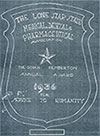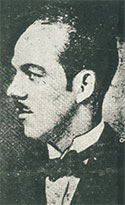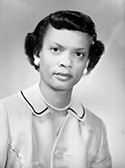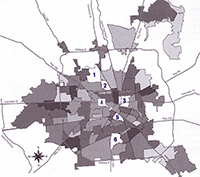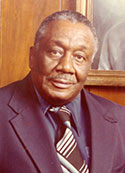Meharry and Howard (1927-1954, Section 14)
Despite the breakthroughs made by Dr. Jones and Dr. Barnett, well-qualified African-American students still found only a few seats available at predominantly white medical schools.Consequently, Meharry Medical College and Howard University College of Medicine continued to educate the majority of black doctors in the nation and in Houston throughout the 1940s and 1950s. Some graduates of these schools were simply returning home to the booming oil town or joining other family members here.
Dr. Dogan Pemberton was the younger brother of another Houston doctor, Dr. Charles Whittaker Pemberton. The Pembertons’ parents, the principal and one of the teachers at their high school, always emphasized education. Dogan
Pemberton attended Wiley College in his hometown of Marshall, Texas. Wiley College is one of the first historically black colleges west of the Mississippi River. Dogan Pemberton followed his brother to Meharry Medical College. He practiced medicine in Houston for six years before he was shot and killed in 1936 by one of his patient’s relatives for unknown reasons. After his death, the community created the Dogan Pemberton Award to honor outstanding African-American physicians in Houston.
Dr. Catherine Roett was born in 1923 in Houston. Her father, Dr. Rupert Roett, was one of the founding fathers of Houston Negro Hospital. Although her father was Meharry alum, she chose to study at Howard University College of Medicine and graduated in 1946. Her specialty was pediatrics, and she trained at the University of Pennsylvania Medical School. When Dr. Roett came back to Houston.she was the first black pediatrician in the city. She joined her father’s practice, located just a few blocks from the Houston Negro Hospital. Growing up in Houston, Catherine Roett drew inspiration from the obstetrician/gynecologist Dr. Thelma Patten Law and her husband James Law, a teacher at Jack Yates High School. In turn, Dr. Roett influenced generations of black Houstonians. “She made a huge difference in the Third Ward for children,” recalled Dr. L. Natalie Carroll .
Many of the other new arrivals in Houston proved both outstanding physicians and businessmen. Given the barriers to privileges at predominantly whit hospitals, African-American physicians in twentieth-century Houston often had found it necessary to be entrepreneurial, such as in the founding of Union Hospital and the Houston Negro Hospital. A new generation of black doctors pursued other business interest as well.
Dr. Hargrove Wooten was born in Jacksonville, Florida in 1925. Dr. Wooten received his B.S. degree in pharmacy at Xavier University in New Orleans, his medical degree at Meharry Medical College, and a Masters of Science at Texas Southern University. After completing his internship at Memorial Hospital in Houston, he went on to a residency in Ophthalmology at the University of Texas Health Science Center. He became chief executive officer of Wooten Pharmacy, a chain of drug stores.
Dr. Carl Mark Carroll grew up in the small Texas towns of Halsted and Yoakum. While attending Meharry Medical College, he and his wife began their family. His daughter, Dr. L. Natalie Carroll, was born during his last year of medical school. Upon earning his medical degree in 1951, Dr. Carl Mark Carroll completed an internship at Kansas City General Hospital #2, one of the few hospitals that had been built new for black physicians and patients with tax funds. Dr. Carl Mark Carroll moved to Houston to be near family in 1953 and started his medical practice in the Fifth Ward on Lyons Avenue. Dr. Carroll also was a businessman, serving as president of the Riverside National Bank and one of the founding members of the National Bankers Association.
Citations
- Dr. L. Natalie Carroll, interviewed by Yimei Zhang, March 29, 2005, tape recording.


